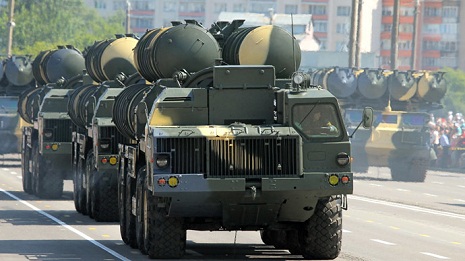A contract inked in 2007 requires Russia to provide Iran with at least five S-300 missile defense systems. However, Moscow refrained from meeting its obligations under the pretext that they were covered by the fourth round of the UN Security Council resolutions against Iran.
In September 2010, then Russian President Dmitry Medvedev signed a decree banning the delivery of the S-300 systems to the Islamic Republic.
Russia`s refusal to deliver the systems under the contract prompted Iran to file a complaint with the International Court of Arbitration in Geneva against the Russian arms company Rosoboronexport.
During meetings between Iranian and Russian presidents, Russia proposed supplying another missile system to Iran provided that Iran cancels its complaint against Russia.
However, Tehran rejected Moscow`s proposal to supply the Islamic Republic with S-300VM "Antey-2500" anti-ballistic missile system, instead of the promised S-300 system.
The Iranian government’s policy was to receive S-300 system based on the signed contract, Dehghan said.
What is important is that the U.S. and Israel have announced that they disapproved of selling the system by Russia to Iran, he added.
Great steps have been taken by Iran and Russia to expand relations, the most notable sign of which was the delivery of S-300 missile system by Russia to Iran, Dehghan stated.
Last December, Dehghan said that Iran still insists on getting the S-300 missile system from Russia, adding the Russian side has illegally canceled the contract under the pressure from Israel and the US.
Following Russia’s decision to lift a ban on supplying S-300 missile systems to Iran, the Israeli PM called President Putin to express his “grave concerns” – and received a detailed explanation of defensive weapons and the logic behind Moscow’s move.
According to a statement released by the Kremlin, Vladimir Putin “gave a detailed explanation of the logic behind Russia’s decision…emphasizing the fact that the tactical and technical specifications of the S-300 system make it a purely defensive weapon; therefore, it would not pose any threat to the security of Israel or other countries in the Middle East.”
More about:
















































